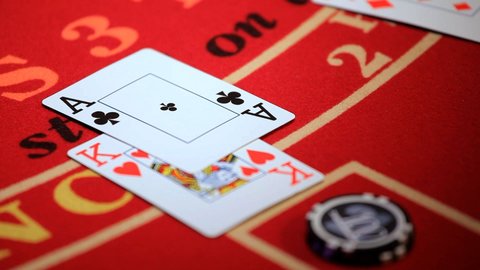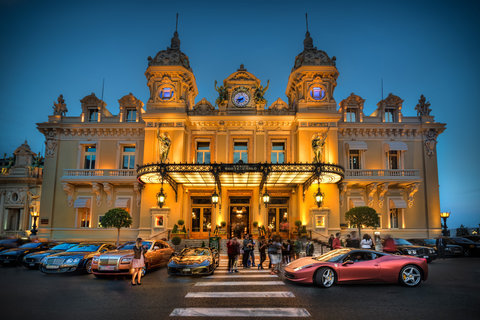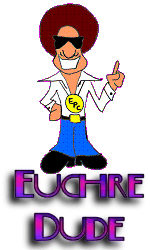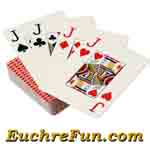
|
| « Games Index | History of Playing Cards | Early Standards | Gallery of Playing Cards | Card Backs |
BlackJack Variants
Considered to have originated in French casinos in the early 18th century, blackjack is a simple game to learn – you only need to know how to count to 21.
For many decades, blackjack’s variations were region-based. European casinos spread blackjack tables with a slightly different set of rules than their North American counterparts. Even within America, the rules of blackjack varied based on the different regions of the country; Atlantic City casinos adhered to rules slightly different than ones in Las Vegas.
The fundamental difference that sets apart various forms of blackjack are the number of decks used. The other major difference in blackjack variants is the concept of surrender. Many American casinos do not offer a surrender option, instead they offer insurance.
These days, online casinos cater to a wide spectrum of tastes, so it no longer matters where you live or how many decks you like to play blackjack with. If you’re in Europe, then you can play using slightly different American casino blackjack rules, or vice versa.

House Advantage
Walk into any casino on the Las Vegas Strip and you will find several rows of blackjack tables offering 8-deck shoes. Multi-deck blackjack is the norm in the gaming industry, because it offers the best possible house edge. Depending on the location of casino, most blackjack shoes are typically 8-decks in North America and 6-decks in Europe.
Single-deck blackjack tables can be found in some casinos, but not every casino makes them available for obvious reasons. At various online casinos, you can find 4-deck blackjack, as well as double-deck blackjack which uses two decks.
Sharp gamblers seek the best possible edges and wise blackjack players memorize all the proper charts. The number of decks that a casino uses is very important when calculating the house edge. The more decks in play, the bigger advantage the house has. That means a player’s best advantage is to only play single-deck blackjack because the house edge is only 0.17% versus the typical 8-deck (most Vegas casinos spread 8-decks), where the house edge is up to 0.65%.
BlackJack - House Edge Based on Decks
- 1 Deck: 0.17%
- 2 Decks: 0.46%
- 4 Decks: 0.60%
- 6 Decks: 0.64%
- 8 Decks: 0.65%

THE MAJOR THREE: CLASSIC, EUROPEAN, AND ATLANTIC CITY
There are three main types of blackjack: Classic, European, and Atlantic City. Classic is considered the hardest because of its utilization of 8 decks. Meanwhile, European seems to be slightly better for the player because it uses 6-decks and has a surrender option.
CLASSIC BLACKJACK
The most basic form of blackjack, also known as Classic Blackjack, is what you will find at the Bellagio Casino in Las Vegas. One of its better options is the ability to split a pair up to three times (for four hands total).
Classic BlackJack
- 8 Decks
- The dealer does not get any hole cards
- Dealer must hit on Soft 17
- Split up to three times
- No Surrender
ATLANTIC CITY BLACKJACK
The main difference of Atlantic City blackjack is that a dealer has one hole card and one up card, so the players can only see half of the dealer’s initial two cards. This nuance affects whether or not a player wants to take insurance if they have 21 and the dealer’s up card is an Ace. According to A.C. rules, you can’t split a pair more than once.
Atlantic City BlackJack
- 8 Decks
- The dealer has one hole card face up
- Dealer must hit on Soft 17
- Split only once
- Insurance offers 1:1 on player's blackjack

European BlackJack
European blackjack is distinguished by its number of decks and the surrender option. Posh establishments throughout Europe, like the Casino de Monte Carlo, spread Blackjack using 6 decks (instead of 8 in Vegas). European blackjack tables do not offer insurance, but instead they offer surrender, which gives the player the opportunity to take back half of their wager if the dealer is showing an Ace. You don’t have to know much about gambling to know that insurance in blackjack is generally considered a “sucker’s bet.” Many gamblers prefer the surrender option much more than insurance.
European BlackJack
- 6 Decks
- The Dealer does not have any hole cards
- Dealer must hit on Soft 17
- Split up to three times
- No Insurance

DOUBLE DOWN
Most casinos will only let a player double down on a hand if they have a 9, 10, or 11. Still some are very strict and only allow you double down on 10 or 11. It’s rare to find a live casino that allows you to double down on any two cards.
Online casinos are different in the double down ruling. Some of them offer options where you can double down on any two cards.
SINGLE DECK AND DOUBLE DECK
Single-deck blackjack offers up the best odds, and it doesn’t matter if you play online or in a real casino. Brick and mortar casinos do not spread many single-deck tables because they have a much greater edge spreading multi-deck tables.
You can also find Double Deck Blackjack, which is exactly what you think: two decks instead of one. The edge is not as strong as single deck, but it’s definitely better than edges offered by European 6-deck or 8-decks in America.
SPANISH 21 AND PONTOON
One of the most commonly-known ancestors of blackjack originated in Spain, but became popular in French casinos in the 18th Century by its name Vingt-Un (or Vingt-en-Un), which translated directly means “21”. According to gambling lore, Napoleon was very fond of the game of blackjack - it was his favorite leisure activity.
The modern version of Spanish 21 uses 48-card decks and these decks do not contain any 10s.
Much like with blackjack, the dealer uses a 6-deck or 8-deck shoe. A player cannot lose if they get a 21 because there are no ties. A player can get a bonus with multi-card 21. For example, a 5-card 21, pays out a 3 to 2 bonus and a rare 7-card 21 pays out a 3 to 1 bonus.
In local casinos throughout Australia, New Zealand and Malaysia, the regional version of Spanish 21 is known as Pontoon.

BLACKJACK FOR THE AGES
Blackjack has always been a wildly popular game of chance since the 52-card deck was introduced, in the 19th century. From its origins as Vingt-Un, blackjack has spread to the farthest corners of the world. The modern incarnation of blackjack, which you will find in casinos in Las Vegas and Monte Carlo, utilize multiple decks. Some casinos will even spread single-deck blackjack for purists and its high rollers. Whether it’s a derivative like Spanish 21 or Pontoon, or its classic version, blackjack will always be considered one of the most popular gambling card games on the planet.
Sources and References
PokerStars Blackjack Rules
Monte Carlo Casino - Societe Des De Mer
The Guardian - Pontton Card Game Rules
Bellagio - Las Vegas Casino
| Complete Index of Card Games » |
||||||||
Articles |
||||||||
| ♠ How to Pick an Online Casino | ||||||||
| ♠ Jurassic Themed Slots | ||||||||
| ♠ Types of Casino Bonuses | ||||||||
| ♠ Solitaire Poker | ||||||||
| ♠ History of BlackJack | ||||||||
| ♠ BlackJack Variants | ||||||||
| ♠ Casino Card Games | ||||||||
| ♠ Making Use of Strategy | ||||||||
| ♠ UK Online Casino Closed | ||||||||
|
||||||||
|
||||||||
| ||||||||
| ||||||||
| ||||||||
|
||||||||
|
||||||||
| ||||||||
|
||||||||
| Complete Index of Card Games » |



| « Games Index | History of Playing Cards | Early Standards | Gallery of Playing Cards | Card Backs |